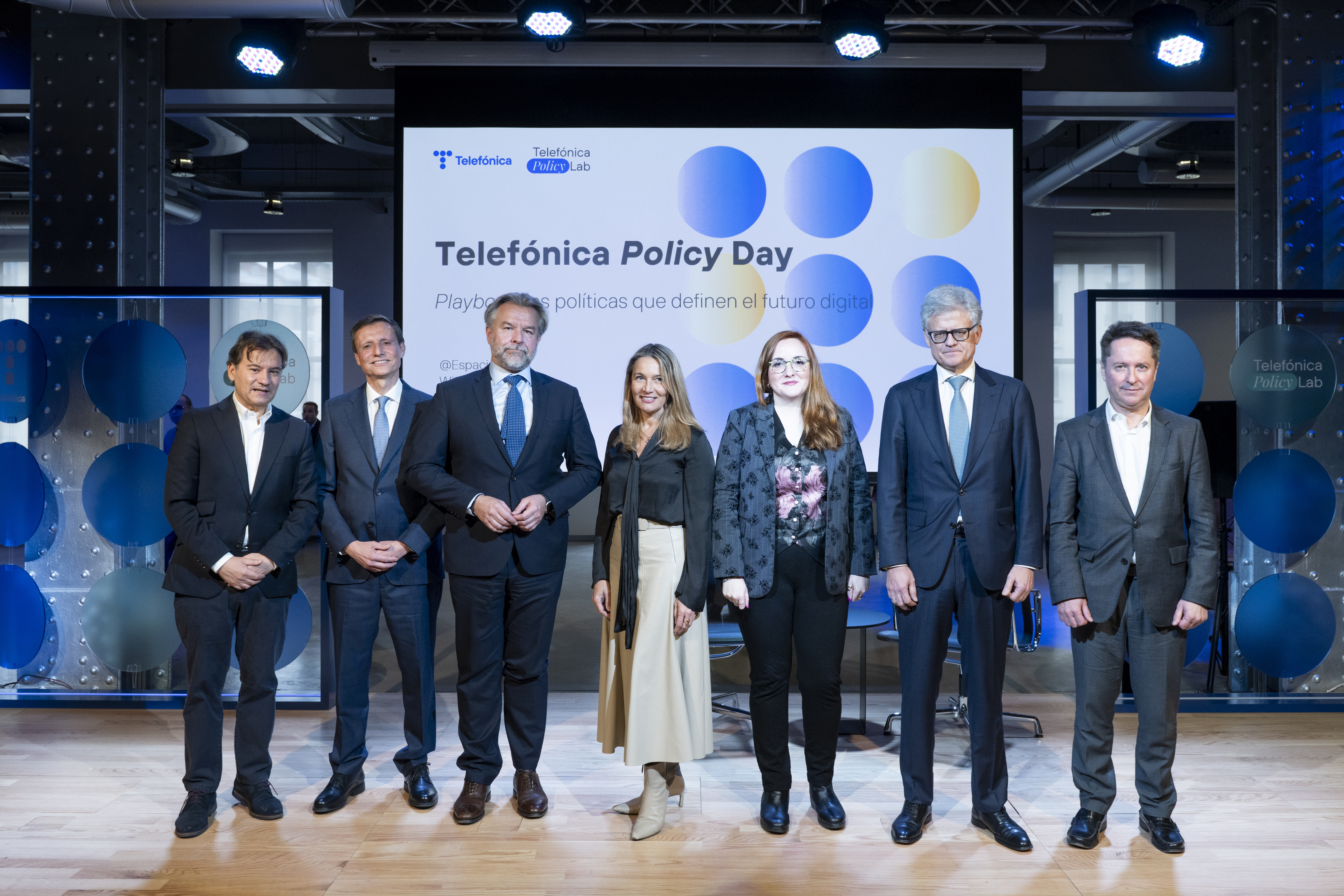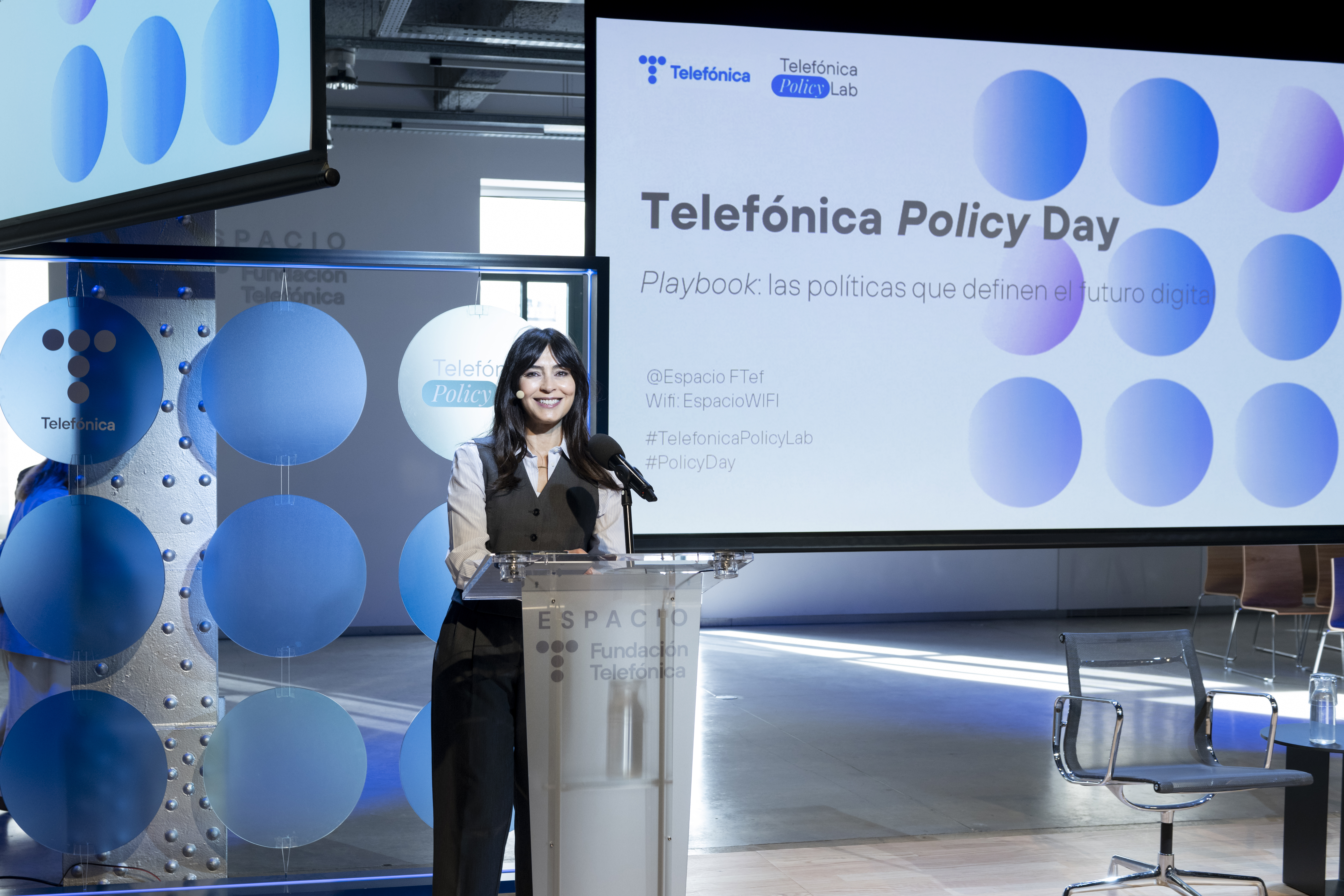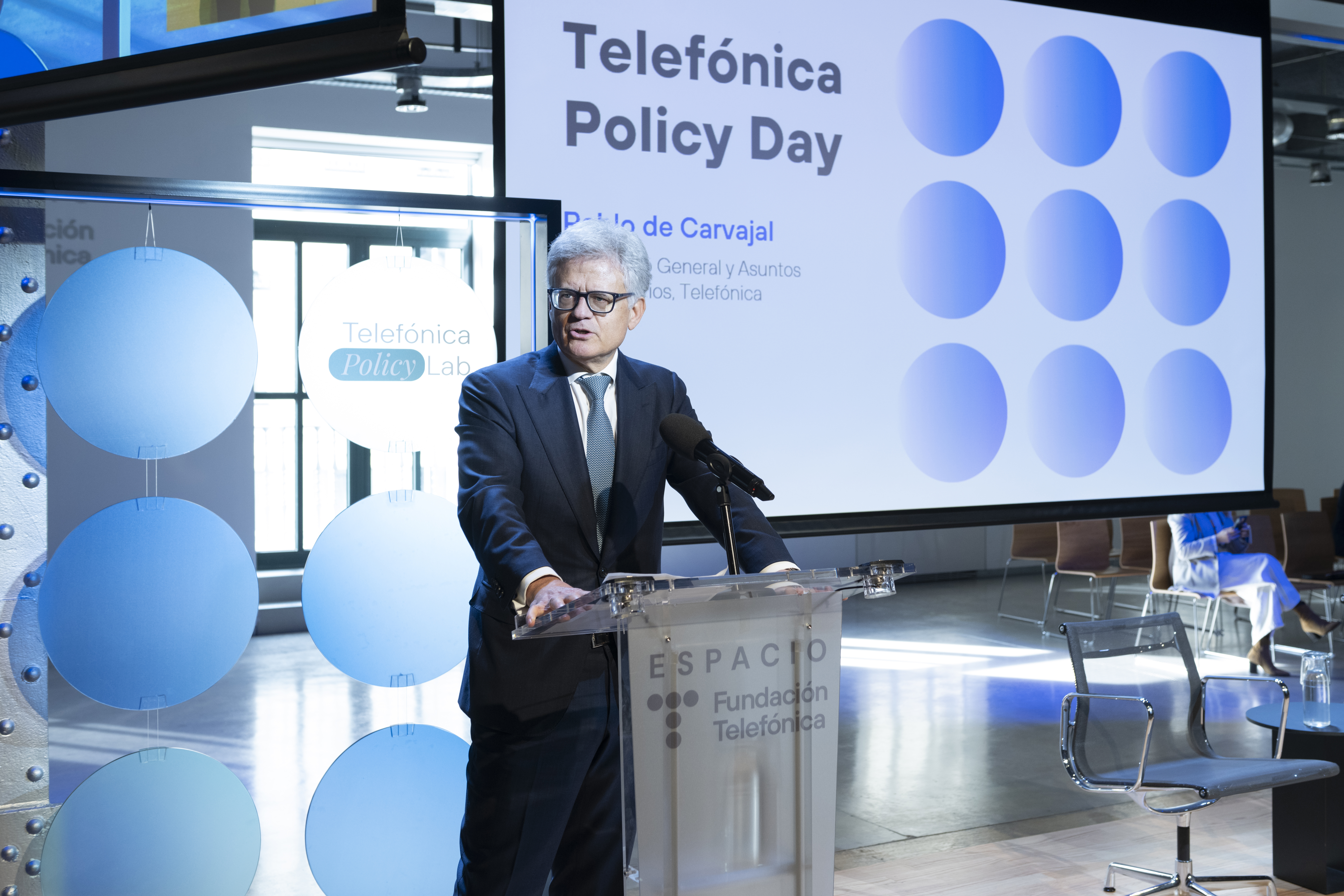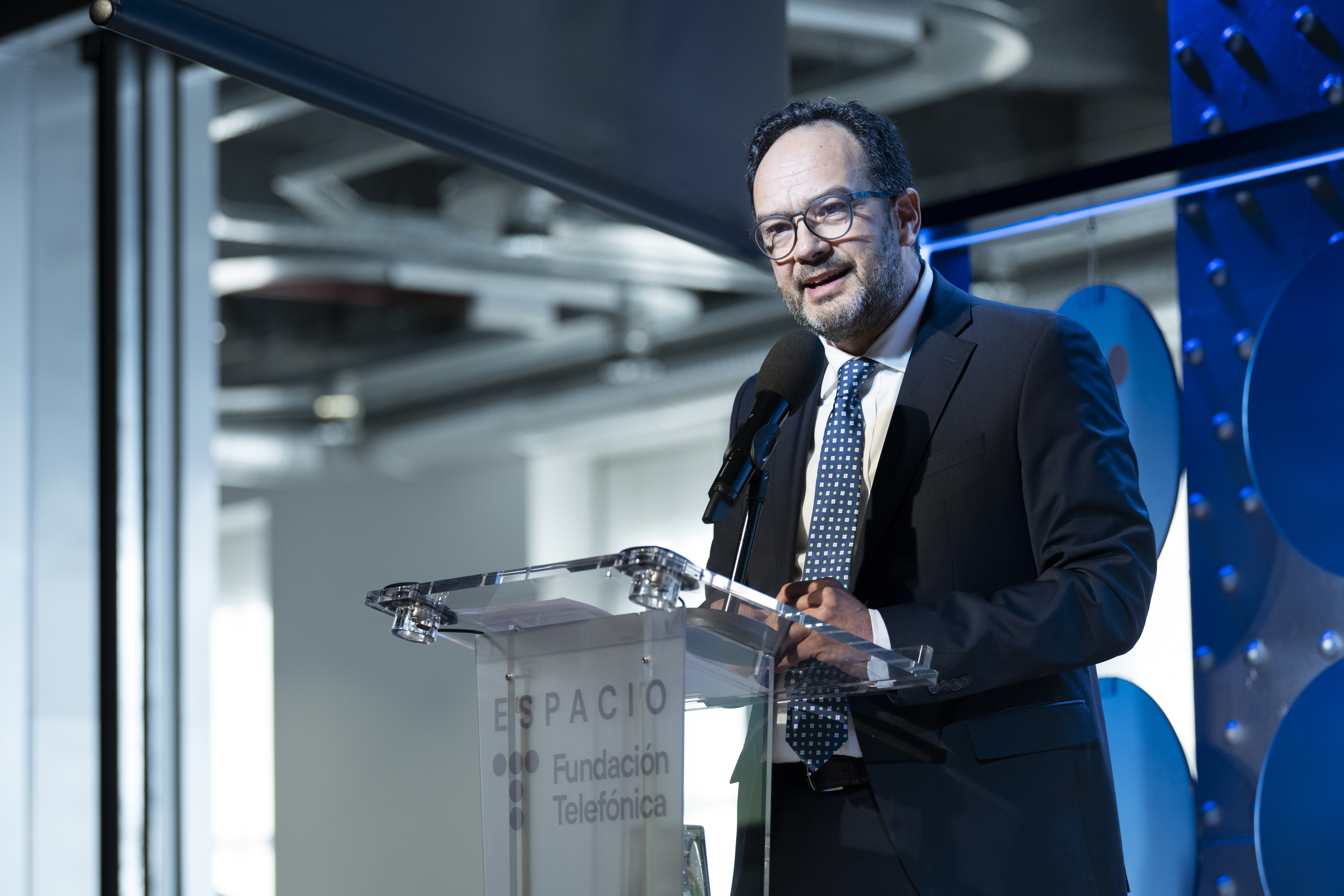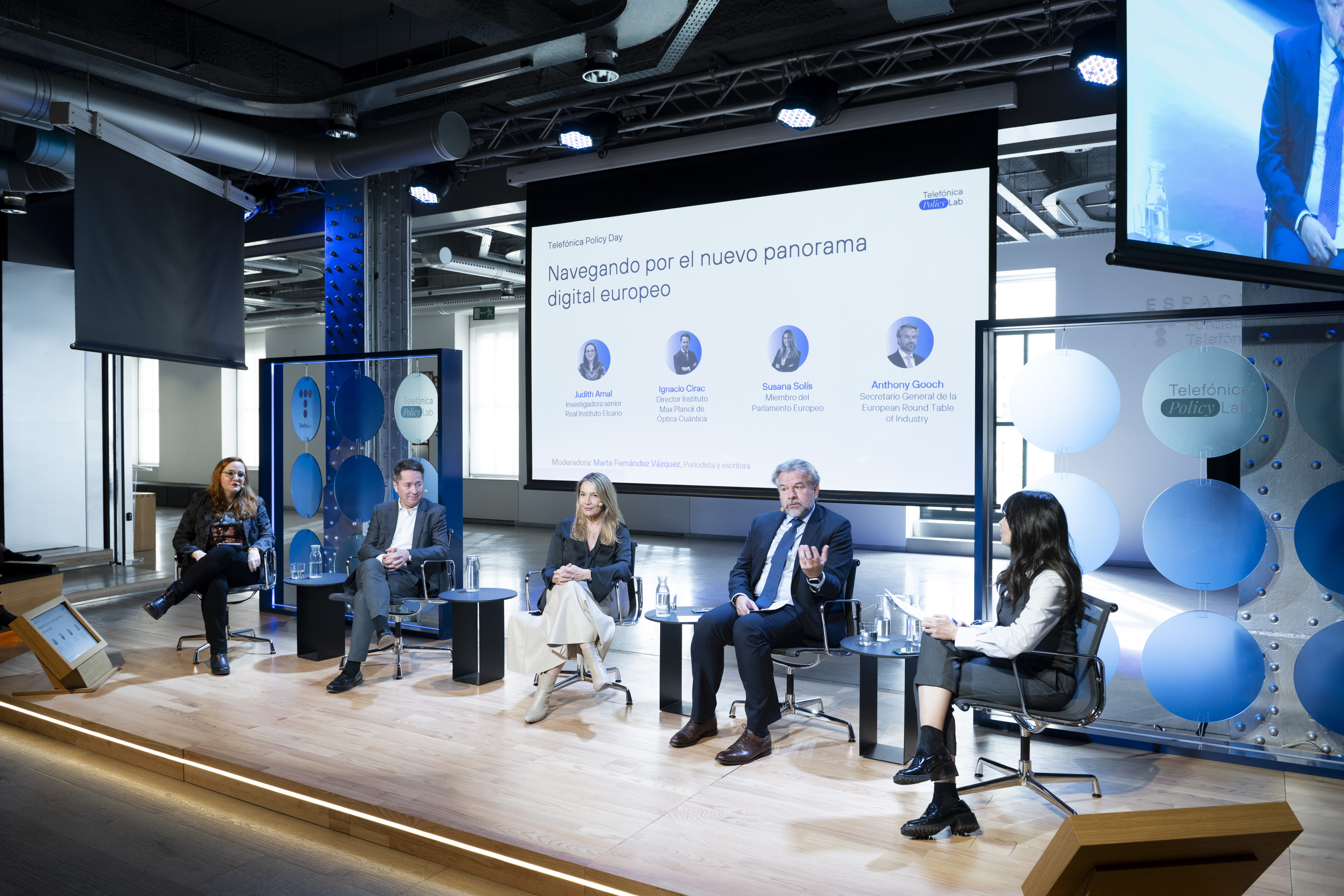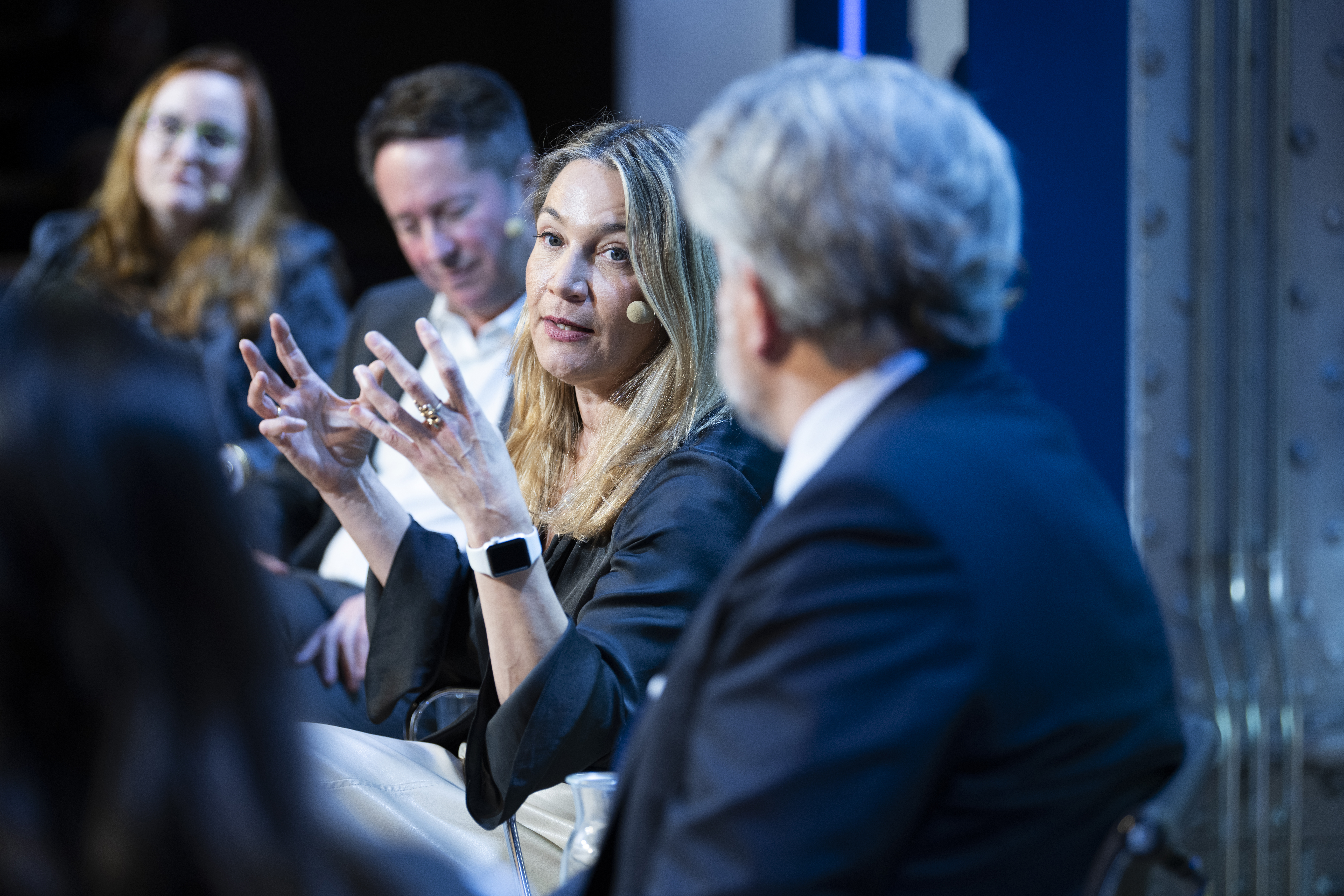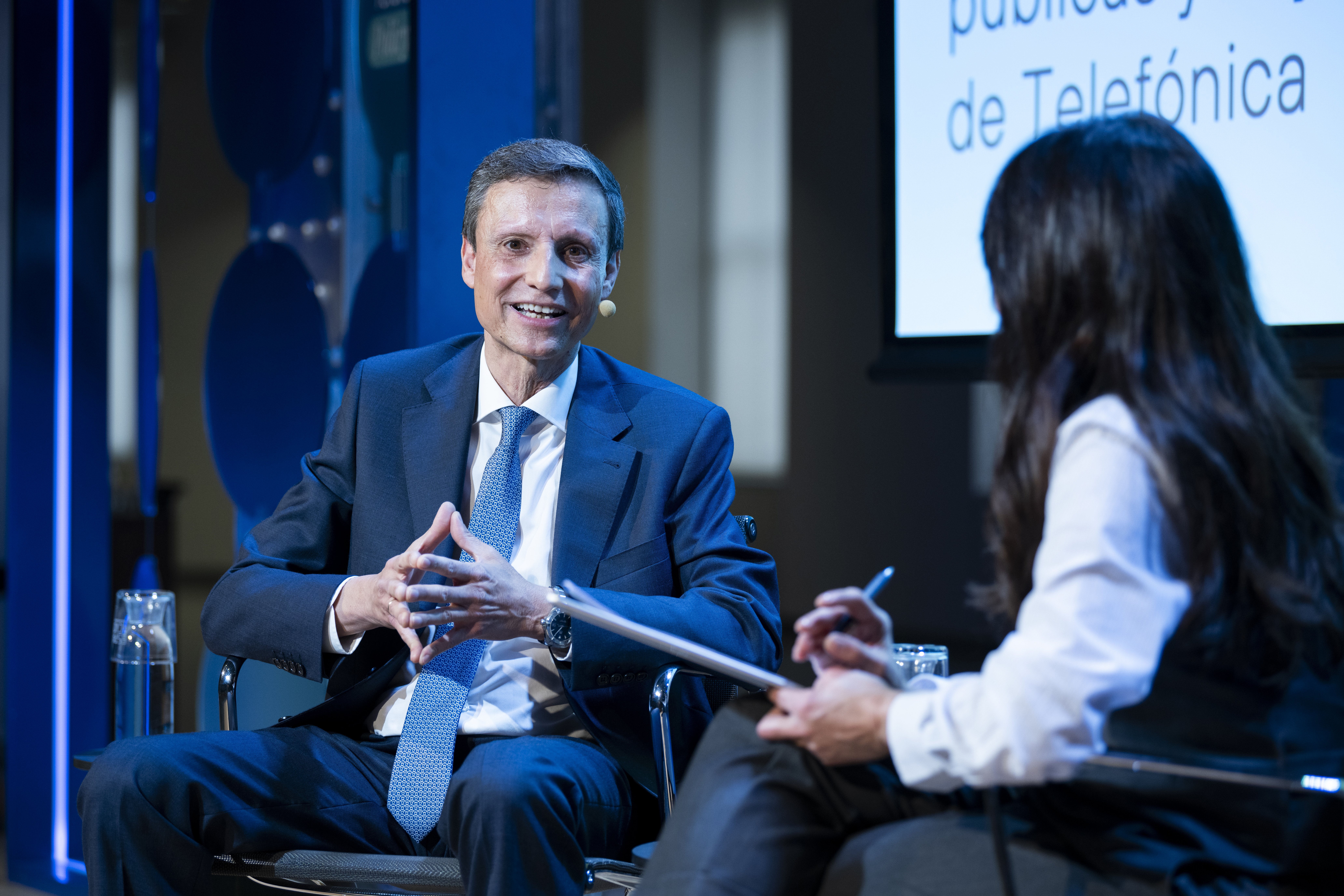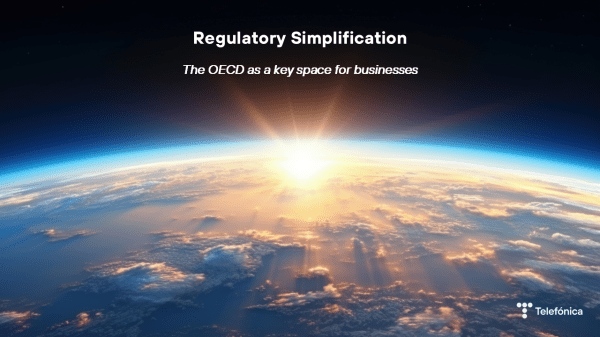On 7 February, the inaugural Policy Day was held at Espacio Fundación Telefónica, as part of Telefónica Policy Lab, a leading platform for experts and notable figures from the public and private sectors, academia, and civil society to engage in dialogue and exchange insights on the pivotal issues that will define the digital era.
The event, entitled “Telefónica Policy Day: Policies for the Digital Future“, the event addressed the decisive moment facing Europe and how public policies are key to restoring Europe’s competitive edge and ensuring that the benefits of digitalisation reach all European citizens.
To address the issue from different angles, the event was attended by different voices. These included Pablo de Carvajal, Secretary General of Telefónica, Antonio Hernando Vera, Secretary of State for Telecommunications and Digital Infrastructure, Anthony Gooch, Secretary General of the European Round Table (ERT), Susana Solís, Member of the European Parliament, Ignacio Cirac, Director of the Max Planck Institute for Quantum Optics, and Judith Arnal, Senior Researcher at the Elcano Royal Institute.
Juan Montero, Chief Digital Public Policy, Regulation and Competition, presented the “Digital Public Policy Playbook “, a document that brings together in a visual and simplified way the main public debates in the digital and technological sphere with the aim of facilitating their understanding by society as a whole. All of this was moderated by the journalist and writer Marta Fernández.
Telefónica Policy Day
Marta Fernández opened the event by outlining the significant challenges that Europe is facing at the beginning of the new institutional cycle, particularly in the areas of technological, economic and social convergence.
She highlighted the publication by the European Commission of “The European Competitiveness Compass“, which sets out strategic priorities for the next five years, with a focus on the urgent need to restore Europe’s competitiveness on the global stage.
In this context, public policy has a crucial role to play in guiding these changes towards a more prosperous future
Driving digital transformation and competitiveness in Europe
Pablo de Carvajal opened the event by highlighting the importance of digital public policies in the transformation of Europe. He stressed that 2024 is the year of the will to change, a key moment to boost competitiveness and innovation with the aim of consolidating an effective transformation by 2025. In this context, he reaffirmed the commitment of Telefónica, a company with 100 years of history, to building a digital, sustainable and inclusive Europe.
As part of this initiative, he presented the Telefónica´s Playbook, an innovative document that seeks to bring digital public policy debates to a wider audience.
Innovation at Telefónica is not only about technology, but also about ideas. With the Playbook, we want to simplify and give visibility to the debates that will shape Europe’s digital future
Pablo introduced Antonio Hernando, Secretary of State for Telecommunications and Digital Infrastructure. During his speech, Antonio Hernando highlighted the importance of an ambitious digital agenda for Spain and Europe. He stressed the need to simplify regulation, encourage investment in connectivity and telecommunications, and strengthen public-private collaboration to boost competitiveness in the digital sphere. He also highlighted Spain’s role as a benchmark in the deployment of digital infrastructures and 5G, insisting on the importance of continuing to make progress in balanced regulation that favours innovation and growth in the sector.
Dialogue is one of the tools from which the best public policies are born
Navigating Europe’s digital landscape
The roundtable “Navigating the European Digital Landscape” brought together leading experts to discuss the challenges and opportunities of digital public policy in Europe.
During the debate, Ignacio Cirac, Director of the Max Planck Institute for Quantum Optics, highlighted the need to adopt long-term policies that enable the development of robust digital infrastructures, emphasising that artificial intelligence (AI) is a key technological accelerator in this process. Judith Arnal, Senior Researcher at the Elcano Royal Institute, underlined the importance of analysing and learning from best practices across Europe in a diverse regulatory context, which requires coherence and balance to foster innovation without compromising security and digital rights.
In this vein, Anthony Gooch, Secretary General of the European Round Table, addressed the issue of trust in decision-making and institutions, pointing out that an open and transparent dialogue between the public and private sectors is essential for advancing effective regulation. He also stressed that Europe must overcome its reluctance and move forward confidently in the digital transformation.
Susana Solís, Member of the European Parliament, insisted on the need to simplify regulation, warning that the current administrative burden could slow down investment and weaken the competitiveness of Europe’s digital ecosystem.
Public policy trends and Telefónica’s roadmap
During his intervention, Juan Montero emphasised the urgency of taking action, stating that “ideas are silver, execution is gold.” He highlighted the telecommunications sector as a strategic pillar for competitiveness, innovation, and social welfare, as well as a key enabler of a resilient and inclusive digital economy. He stressed that investments in connectivity are essential to ensuring secure, high-quality networks but warned that outdated policies and uneven competitive conditions are limiting the sector’s investment capacity.
The Digital Public Policy Playbook was presented as an innovative document that organises Telefónica’s positions around three key axes: competitiveness, technological innovation, and sustainability and inclusion. Its focus on simplification and visualisation is reflected in concise three-page chapters, each accompanied by infographics, key figures, and graphs to facilitate understanding. Each chapter follows a clear and coherent structure, divided into three main sections: context, challenges, and recommendations, ensuring a structured and accessible analysis. Additionally, the document provides two levels of depth: one with visual summaries and another with detailed thematic reports. As an illustrative example, the chapter on spectrum was presented.
Finally, Juan Montero noted that by 2025, he looks forward to the European Commission’s proposal on the Digital Networks Act (DNA), highlighting that this is the right time to create a public policy, regulatory, and competition framework that strengthens the sector, fosters innovation, and ensures a fairer balance among digital players. Only by doing so can Europe develop future-ready networks.

